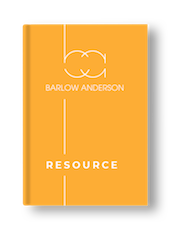
Things keep working the way you always think they will–until they don’t. This can be especially disorienting in terms of your health, where the lack of a backup plan can have swift financial and logistical consequences. For these reasons, it’s best that you draft a power of attorney (POA) deed while you’re still in possession of your physical and mental faculties; these arrangements can save both you and your loved ones unnecessary heartache in the event of an accident.
If you’re thinking about drafting a POA but aren’t sure where to start, know that you’re not alone. Trying to make sense of these laws and their different limitations can be exhausting for the uninitiated. Fortunately, Barlow Anderson’s team of estate planning attorneys can guide you through the process with their combined experience and legal know-how. If you’re curious about how we can help you in particular, give us a call at 907-375-0750 today.
What Is POA Anyway?
In Alaska, POA is typically referred to as a durable power of attorney, and it lets the person named as the “health care agent” in the deed make significant health care and end-of-life decisions if the person handing over these rights cannot consent or communicate their decisions themselves. This means that if you have an active POA deed and you slip into a coma, your health care agent can handle your medical affairs for you moving forward.
While a health care agent can consent to or refuse pain relief or medical care for the patient, they cannot approve the removal of life support unless explicitly stated otherwise in the POA deed.
POA deeds are revocable at any time, meaning you can invalidate the deed whenever you wish to do so. Revocation of POAs usually happen when the patient in need of a POA wishes to change health care agents. Perhaps the agent was not living up to his or her duties or simply uninterested in performing this role any longer. No matter what the reason is, an experienced estate planning attorney can help you make adjustments to your POA deed as you go.
Where POAs End and Begin
So when does a POA deed take effect?
First, a doctor has to declare that you lack the capacity to make any of your own health-related decisions. This could mean you either don’t understand the circumstances of your condition or can’t communicate your wishes at all.
Unsurprisingly, a POA deed ends upon your death, so your health care agent can only make decisions on your behalf while you’re still alive. In some states, agents may retain these powers after death in order to make certain decisions, such as funeral arrangements. Another way you can terminate a POA deed is to simply revoke it.
How Barlow Anderson Can Assist You
Anchorage residents looking to draft a POA deed should turn to Barlow Anderson. Not only can this team of adept and knowledgeable estate planning attorneys help you navigate the ins and outs of POAs, but they’ll be there every step of the way to answer your questions, comments, and concerns. If you want to work with a smart team of empathetic estate planning lawyers, call us today at 907-375-0750 to schedule your free consultation.


